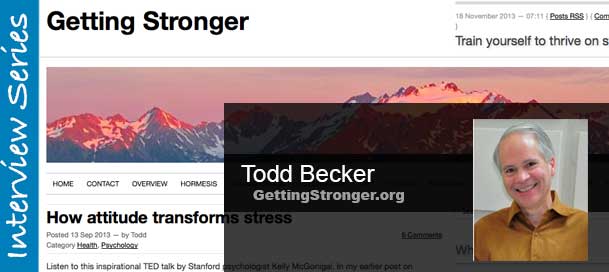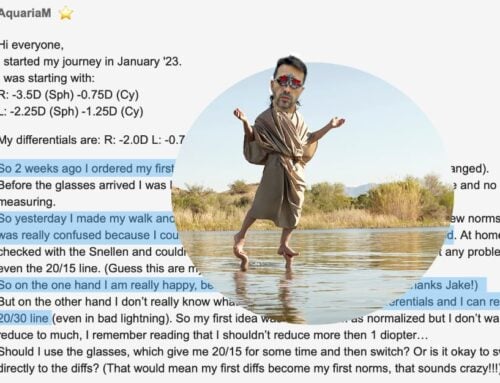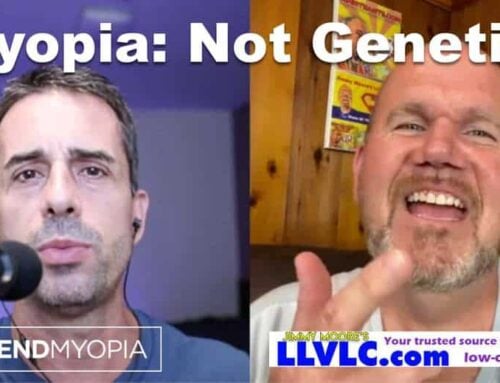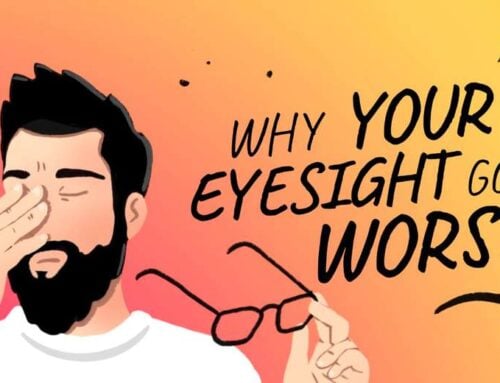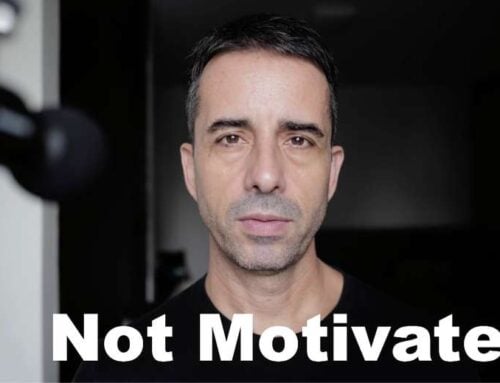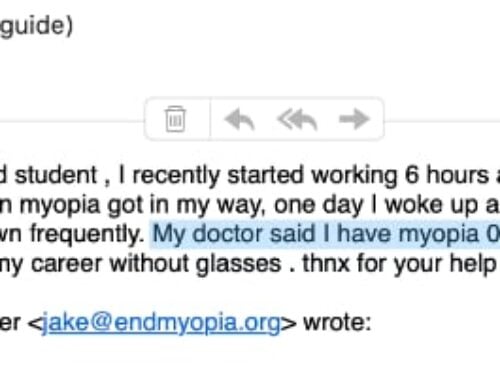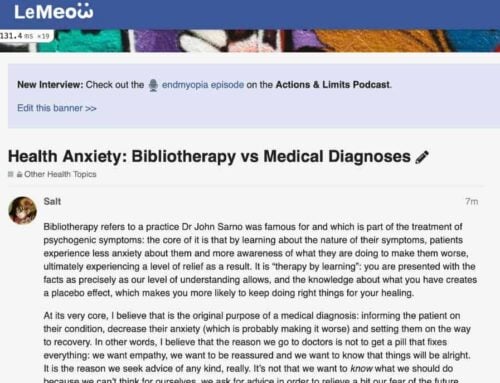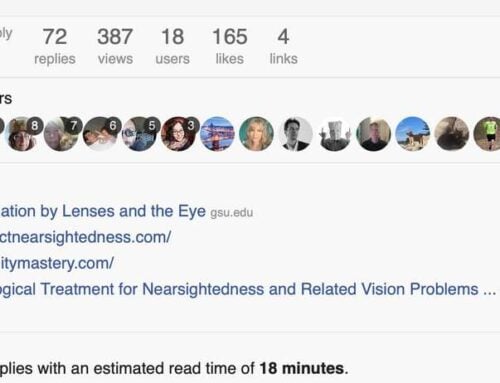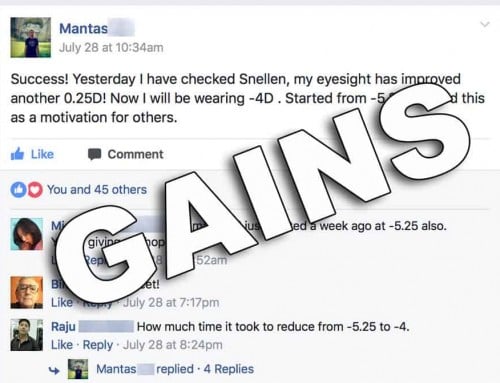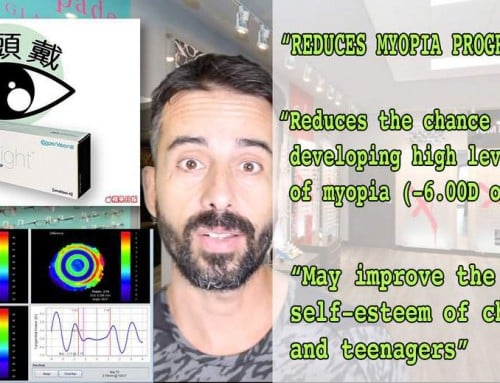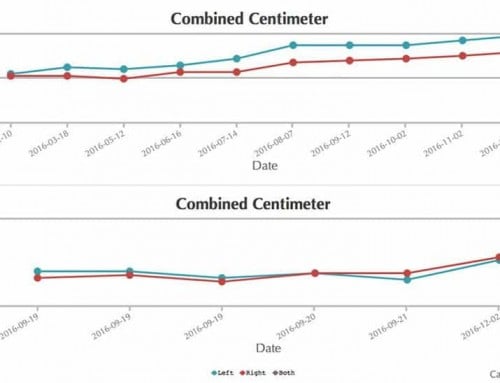Here is the first of the interview series, with Todd Becker, from GettingStronger.org.
From the author page:
Todd Becker is a freelance blogger based in the San Francisco Bay Area, where he lives with his wife and two children. He has degrees in Chemical Engineering and Philosophy from Stanford University and Brown University. Todd currently works as a staff scientist for a biotechnology company in Palo Alto, where he leads project teams and holds more than 20 patents.
Todd’s philosophy of Hormetism is the result of years of personal investigation into the role of moderate stress in adaptation, as applied to health, nutrition, rehabilitation and psychology. By combining this research with a philosophical curiosity about the underlying similarities among these diverse fields, he is interested in how we might exploit this understanding to overcome challenges, adapt, and thrive in any of our endeavors.
Why I asked Todd for an interview:
Todd’s blog discusses many of the benefits of using a small degree of strain (targeted stimulus) in various aspects of physical health. This is a core component for myopia rehabilitation (as it is for many other forms of physical therapy) – and he expands into areas besides just eyesight.
This site only deals with myopia, and on most accounts, it is all as told by just one person – myself. In adding other perspectives, I hope to bring you new ideas, and a broader context to your eyesight health goals.
The Interview
Q. Your site, called “Getting Stronger.” What inspired you to start writing about stress adaptation and how it relates to our health?
A. That’s a good question, Alex, it wasn’t any one single thing, but rather a common pattern I had noticed in several different areas of health, including diet, fitness, psychological resilience and – one that you are familiar with – vision improvement. In all of these areas, the conventional wisdom is that stress is a bad thing. And yet, I had personal experiences that taught me that I was able to adapt to stressors in a positive way, a way that left me stronger than where I had started out. The most obvious example is how lifting weights causes our muscles to hypertrophy, to grow larger and stronger. The muscles adapt to stress. But it’s not only the muscles that do this. We adapt in positive ways to many other types of stress. For example, restricting carbohydrates or fasting for short periods of times causes the body to adapt to this “dietary stress” by adjusting the metabolism in order to utilize fat more efficiently. And as you know very well from your own research and practice, the eyes adapt and remodel in response to the stress of defocus.
I saw the common thread of adaptive response across all these different areas. There was certainly a lot of research and writing on adaptation in diet and fitness, but nobody seemed to be connecting the dots about the benefits of hormetic stress. So you’ll see that the topics in “Getting Stronger” are very wide-ranging – and yet there is a strong unifying theme.
Besides hormesis, a secondary theme of my blog is that the route to health should focus on root causes, not symptoms. Our modern approach to health care is focused almost obsessively on treating symptoms by alleviating stress in some fashion. Everyone wants to take a pill to lose weight, lower blood pressure, or control allergies. Modern medicine promises immediate relief, instant results. Eyeglasses are a great example of this – minus lenses provide an immediate correction that relieves the discomfort of blurry vision, allowing you to see everything in hyper-sharp focus.
The hidden cost of these symptomatic treatments is that they weaken you. When you provide someone with a crutch, the removal of the stressor causes a homeostatic response in the opposite direction. If you break your leg, you need to put a cast on your leg to get around. But the leg muscles will soon atrophy and you’ll lose some bone mass. Once the break heals, you need to start walking on it again or you’ll stay weak. Similarly, stronger minus lenses provide short-term relief, but they don’t treat the root cause of your myopia; in fact they make your underlying myopia worse. With time, you continue to progress to needing stronger prescriptions.
My blog turns the modern prescription on its head. Rather than weakening ourselves with symptomatic treatments, let’s find ways to make our bodies and minds stronger and less dependent on artificial medicines and devices. We can use stressors pragmatically to force adaptations that enhance our fundamental health and functional capabilities.
Q. You are exploring key health topics, and how one might create positive change for themselves. How would you describe Hormetism and its tangible benefits, in perspective to some of your most popular posts?
A. “Hormetism” is a term I came up with to describe the practical application of the well-known scientific principle of hormesis – the beneficial effect of low or moderate doses of stress. Because stress is usually looked at as a bad thing, we are all told to avoid it as much as possible. While it is true that excessive or chronic stress can cause disease and trauma, the fact is that we need a certain amount of stress to maintain and improve health. Edward Calabrese, Suresh Rattan and other s have published a lot of excellent studies showing that many chemicals or stressors that are harmful or deadly at high dosages are actually beneficial at low doses. We know for example that minerals like selenium or copper are poisons at high dose, but you need small amounts of them for health or even to stay alive. We know that excessive exposure to sun can cause cancer, but moderate UV radiation is beneficial – for example it produces vitamin D in the skin. And we know that our muscles and bones get stronger from moderate weight bearing exercise, even though excessive force or repetition in exercise leads to injury.
But in my blog I want to go beyond these mere scientific observations and ask whether we can actively apply hormesis in a practical way to get stronger physically and psychologically. My view is that hormesis is not just an interesting or odd scientific principle that applies here and there in some unusual cases, but rather that hormesis a very general biological principle that applies almost everywhere you look. And yet, very few people think about how we can take advantage of this principle as a practical tool for health.
I prefer to look at hormesis not just a matter of “low dose stress”, but rather as a set of defense and repair mechanisms that enable our bodies to adapt to stress. We can exploit hormesis to become stronger and healthier–to thrive. We can deliberately apply stress in a controlled manner to improve the function of our muscles, or metabolisms and even our eyes. We can even use it to remodel our behaviors – to overcome cravings, addictions, anxieties, depression and other psychological limitations. These are all very tangible benefits!
Q. The topic of stress adaptation is particularly relevant to my own audience, as it is a key ingredient to vision improvement. You too delved into that subject, which appears to have created substantial dialog among your readers. How did you come onto this topic, and what do you take away from your interactions since publishing the posts on reversing myopia?
A. About a decade ago, I took a two-week vacation with my family at a remote location. I rarely get to take that much time off from work so I was looking forward to some rest and recreation. But when we reached our destination, I soon realized that I had left my glasses at home. I was quite frustrated. How would I get through the vacation without my glasses? But after a few days, hiking, biking and hanging out at the beach and socializing, I realized my vision was getting better. I started to notice that I could even see objects in the distance a bit more clearly. When I got home, I researched natural vision improvement and came across an Internet offer from Brian Severson. Severson was a pilot who devised a type of plus lens therapy, a program he called “Vision Freedom”. Severson had tried the Bates method, but concluded that it was ineffective. Along with his pamphlet, he sent me a set of plus lenses and some instructions for a technique that many of us recognize as “print pushing” – deliberately reading at the edge of focus with a slight blur. The slight retinal defocus induces an “autofocus” response by the eye. Over time, this leads to retinal remodeling and reduction in myopia or hyperopia.
I found that a combination of print pushing for close reading, together with plus lenses for distance use, rapidly reduced my myopia. I made up some games, like looking at overhead telephone wires or edges of buildings at a distance, and I found these would often appear as double images. I found that if I concentrated, one of the images would become progressively stronger, the other would start to fade. After about 6 months, I stopped using my minus lenses altogether – even for driving. I can’t overstate how liberating that was!
Eventually, vision improvement through print pushing and distance focusing became one of the examples I used to develop my theory of Hormetism. It’s such a great example of the persistent, gradual, progressive application of a stressor to correct a health problem. I did more research and found that there is a real, physiological basis for why and how defocus causes the eye to change. It’s encapsulation in the Incremental Retinal Defocus Theory of Hung and Ciuffreda. It has a real physiological basis. But I’ll be you that not one in ten thousand opthamologists has every heard of the IRDT theory. There are behavioral opthamologists and true pioneers like yourself who go beyond the purely “corrective approach” to vision improvement, by helping people to regain the natural focusing ability of their eyes. But I’d really like to see the science of vision improvement through incremental defocus become more developed and better known.
Since I posted several articles on vision improvement on my blog, I’ve had tremendous response. In fact, my post on improving eyesight has the most visits of any single article on my blog, and vision improvement is the most active topic on the discussion forum associated with the blog. From the comments posted, a number of individuals have significantly reduced their myopia. I did an interesting interview with one of them, a 17-year old who actually improved his vision to 20/15. So it’s generated a lot of interest. And I see that many of those who post on my site are active on yours as well.
Q. Besides myopia, what key areas would you recommend for readers to explore, when first visiting your site?
A. A lot of people come to Getting Stronger with the single interest of vision improvement. But I hope that the ideas resonate beyond that, and provoke readers to think about their health more generally. I suggest spending some time on the site to scroll around and look at some of the older articles. If you are interested in losing weight or overcoming food cravings, read my Diet page about the Deconditioning Diet to eliminate cravings, and the posts “Obesity starts in the brain” and “Change your receptors, change your set point”. While genes influence our health, I strongly believe that you are not born with genetically pre-determined set point for weight or mood. Weight and mood are just as changeable as your visual acuity. If you struggle with addiction, depression, or low mood, read my post on “The Opponent Process Theory of Emotion” and “Overcoming Addictions”.
Q. On a personal note, which areas have you personally benefitted most from, in relation to Getting Stronger?
A. The ability to shed my glasses was certainly a liberating event for me. But I think the most exciting aspect of hormesis is the prospect of life extension and reducing the risk of degenerative diseases such as heart disease, cancer, diabetes and dementia. The evidence is quite strong that calorie restriction is associated with longer life, or at least longer “healthspan”. The mechanisms for why this works are the subject of a lot of study. The underlying trigger appears to be a reduction in basal insulin levels. Getting your insulin low is protective against degenerative diseases. And yet it’s hard to cut back on eating – food is a source of pleasure for most of us. I’ve found that there is a way to do this that is sustainable. It’s an approach known as intermittent fasting – IF for short. So I eat one meal a day about 5 days a week – usually dinner. And the other days, I mix it up to keep from getting in a rut. It’s not as crazy as it sounds. Humans did not evolve eating three square meals a day, and they certainly didn’t have access to a constant steam of snacks and sugary soft drinks.
I don’t advise making a sudden change to eating one or two meals a day. I’m a big advocate of gradualism. Just as with improving vision, adaptation works best if you take baby steps. There is an art to Hormetism, and gradualism is one of the secrets.
Another practice I have benefitted from greatly is taking daily cold showers. It’s invigorating, better than coffee. It’s especially great in the winter, because it turns on your body’s natural thermogenesis, which makes your warmer. But the biggest benefit of cold showers is the effect they have on mood. Cold showers are a natural anti-depressant and make you cheery. I know of three people who cured clinical depression by taking daily cold showers.
Q. What are your future goals for your site, and what new topics might you currently be exploring, that readers could be looking forward to reading about further?
A. I’m always reading the latest research and exploring different ideas. My blog is not a “one note” missive, but a platform for investigating the possibilities of human adaptation in many different areas. So I find that I always have about dozen half-finished posts going. It’s the same bad habit I have with reading several books at the same time.
To answer your question, my latest area of interest is pain prevention. I’m finding that hormesis can play a beneficial role in addressing the root cause of several types of common pain. Stay tuned – you’ll be reading about it soon.
Q. And more out of personal curiosity than anything: Of all things, did you end up choosing Philosophy, together with Chemical Engineering, as your fields of study? I can’t help but imagine that the combination may result in some tales worth telling?
A. My life has not been a straight line. I’m an explorer and I follow my interests where they take me. I started out studying engineering at Brown University, but it was taught in an uninspiring way. At the time I was much more interested in philosophy, so I switched majors. After Brown, I enrolled in the Ph.D. philosophy program at Stanford, where my interest was the philosophy of science. I was really interested in the scientific method. To fill in some gaps in my knowledge I took a number of math and science courses. This was around the time of the biotech revolution in the early 1980s, and I became re-interested in engineering. I did an internship at Genentech and found the science and engineering problems to be exciting. I then went to the University of California of Davis and got a M.S. with a thesis in biochemical engineering. So I have two masters degrees – in philosophy and chemical engineering — but I never completed a Ph.D.
I have had a very interesting and productive career as a staff scientist at a biotech company for the past 28 years. But I’ve maintained a strong interest in philosophy of science. When I look at health issues, I’m always fascinated by the underlying mechanisms. And as an engineer, I take a systems approach – not just looking at the surface effects, but looking at the causes of illness, and the consequences of any intervention. Since health and fitness are important personal values of mine, I bring this analytical, systems perspective with me. And maybe this funny combination of philosophy and engineering are what led me to develop the philosophy of Hormetism. It’s both philosophy and science – and yet it is also very personal and practical. I get a lot of satisfaction from writing the blog. I enjoying the research and analysis, and I’m gratified to receive comments and private correspondence from people who tell me it has helped them with their problems.
Also consider reading other posts and sites that discuss physical therapy and rehabilitation. All concepts you will find on this site follow those practices, specifically adapted to deal with eyesight, modern day lifestyle eye strain challenges, and proper use of eyeglass prescriptions.
I hope you enjoyed,

